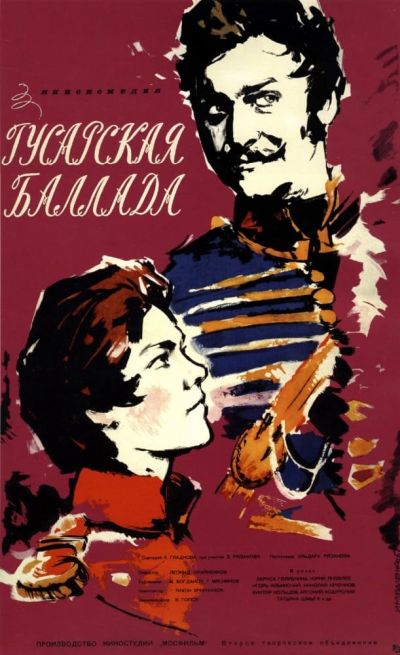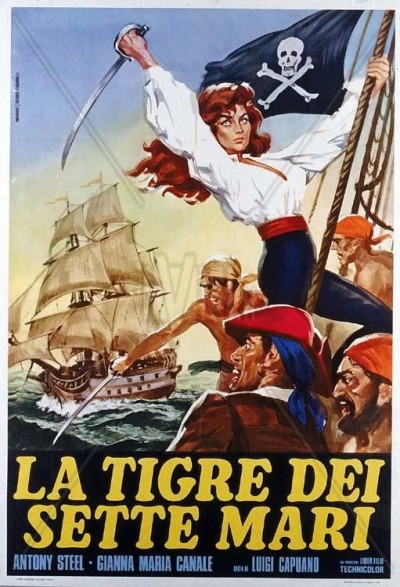★★★
“Russian off to war…”
 This is an adaptation of a Russian play A Long Time Ago by Alexander Gladkov, but was inspired by the real-life exploits of Nadezhda Durova. She was a woman who basically pulled a Mulan, concealing her gender in order to defend her homeland in the Napoleonic and other wars of the early 19th century. Durova joined the army on her 23rd birthday and served honourably for a decade, even after her true gender was discovered. Tsar Alexander I was impressed when he heard about Durova, giving her a promotion after summoning the soldier to his palace in St. Petersburg. Wounded by a cannonball at the Battle of Borodino, she eventually retired in 1816, with the rank equivalent to captain-lieutenant.
This is an adaptation of a Russian play A Long Time Ago by Alexander Gladkov, but was inspired by the real-life exploits of Nadezhda Durova. She was a woman who basically pulled a Mulan, concealing her gender in order to defend her homeland in the Napoleonic and other wars of the early 19th century. Durova joined the army on her 23rd birthday and served honourably for a decade, even after her true gender was discovered. Tsar Alexander I was impressed when he heard about Durova, giving her a promotion after summoning the soldier to his palace in St. Petersburg. Wounded by a cannonball at the Battle of Borodino, she eventually retired in 1816, with the rank equivalent to captain-lieutenant.
Somehow this became a light and fluffy slice of musical rom-com. 17-year-old Shura Azarova (Golubkina) is an accomplished rider and tomboy, who meets Hussar officer Dmitry Rzhevsky (Yakovlev), and is mistaken by him as a brother in arms. [As usual in these things, significant suspension of disbelief is required!] When war with France breaks out, Rzhevsky returns to his unit and Shura convinces faithful family retainer Ivan (Kryuchkov) to help her join the army in disguise. She makes a name for herself as a skilled and brave courier, though her relationship with Dmitry is more adversarial than romantic. There’s a French actress on whom he has designs, triggering her jealousy. Mistaken as rivalry, Dmitry and Shura end up having a duel, though the war keeps interfering in its execution.
All is forgiven after Shura is captured on a spying mission, Dmitry leading his platoon to the rescue, and leading to a rather decent extended fight, running through a ransacked stately home. [While the actual swordplay is no great shakes in general, the other stunts aren’t bad, including Shura leaping down off a balcony, which looks to have been done by the actress herself] The sudden moments where people burst into song are a little jarring initially, yet I got used to them – probably, again, a point of comparison to Mulan. The production is quite large in scale: there’s an opening ball sequence that’s impressive, and the battle scenes aren’t bad, albeit not quite War and Peace [though some of the costumes from it were recycled here!]
There is the obvious, and given the era probably entirely expected, patriotic theme, with discussions about defending the motherland. The film’s premiere took place on the 150th anniversary, to the day, of the previously-mentioned Battle of Borodino, a famous and bloody encounter between Russia and Napoleon’s forces – best known for inspiring the 1812 Overture by Tchaikovsky. However, it’s rarely heavy-handed, and for all its fluffiness, lack of substance and shortcomings in the motivation department, you do find yourself rooting for Shura. To be honest, perhaps to a greater degree than Dmitry, who comes off as a bit of an arrogant dick. Likely more genuinely progressive than anything coming out of Hollywood around the same time.
Dir: Eldar Ryazanov
Star: Larisa Golubkina, Yuriy Yakovlev, Igor Ilyinsky, Nikolay Kryuchkov





